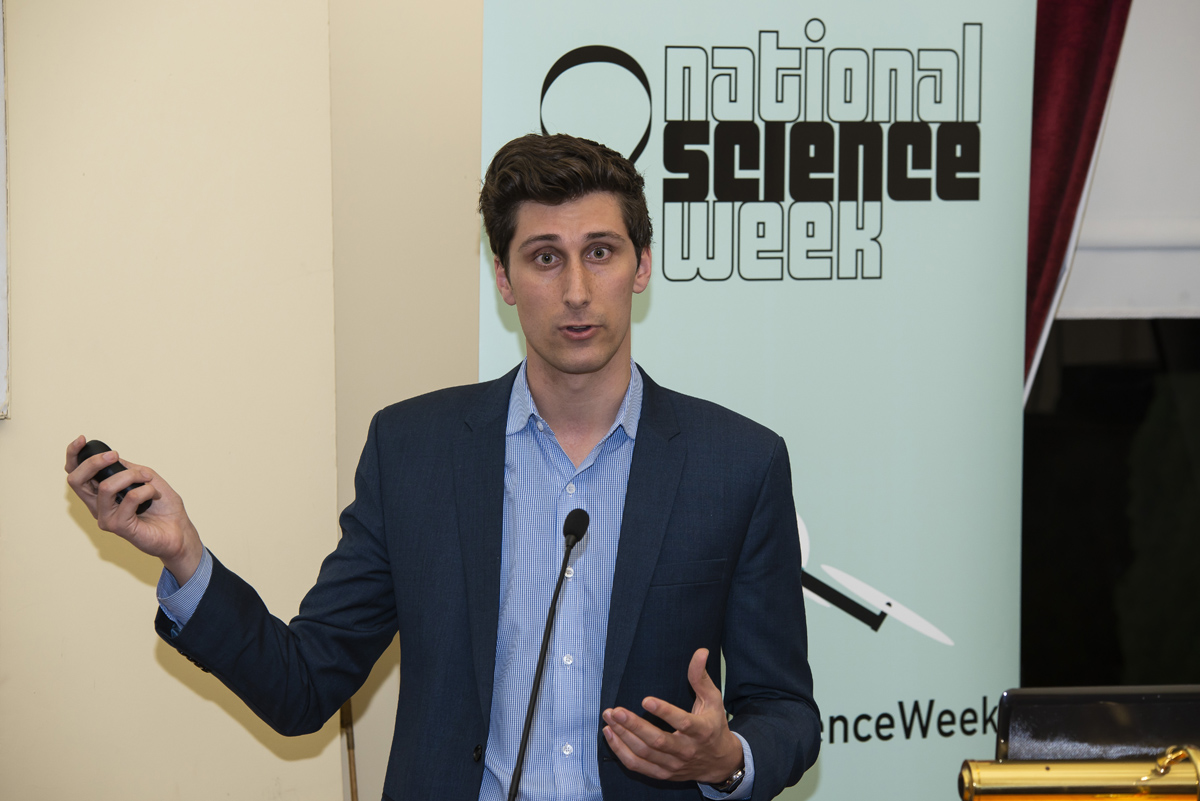PhD research helping babies to breathe recognised with Royal Society prize
By Hudson Institute communications

PhD student Aidan Kashyap, who is progressing research to help babies born with underdeveloped lungs, was awarded a Young Scientist Research Prize in Biomedical Sciences by the Royal Society of Victoria on 16 August.
The awards recognise excellence in Victoria’s early career scientists. Prizes were open to Victorian students in their final year of PhD candidature, in biomedical and health sciences, biological sciences (non-human), earth sciences and physical sciences.
In a 15 minute presentation at the Royal Society of Victoria’s Hall, Aidan explained how his research is finding therapies to help babies who struggle to breathe at birth due to underdeveloped lungs, a condition known as congenital diaphragmatic hernia (CDH).

Aidan is co-supervised by A/Prof Ryan Hodges and Dr Philip DeKoninck from the Fetal Therapy Research group, and Prof Stuart Hooper and Dr Kelly Crossley, from the Fetal and Neonatal Health Research group at The Ritchie Centre, so is in a unique position to investigate novel therapies to treat these babies both before and after birth.
The finalists were judged not only on the scientific methodology and significance of their work, but also their ability to make their work accessible to a general audience.
Winners were announced at a function following the presentations. Aidan received a prize of $1250 as the winner in his category.
“During my PhD, we have investigated three therapies that will each help babies with CDH in a different way – a fetal surgical procedure to increase lung growth, an antenatal medical therapy to improve lung blood vessel development, and delaying umbilical cord clamping to enable a smoother transition to newborn life,” Aidan said.
“It was very exciting to be able to share our experimental results with the Royal Society, and to hear about the fascinating work of the other finalists.”
About Hudson Institute
Hudson Institute’ s research programs deliver in three areas of medical need – inflammation, cancer, women’s and newborn health. More
Hudson News
Get the inside view on discoveries and patient stories
“Thank you Hudson Institute researchers. Your work brings such hope to all women with ovarian cancer knowing that potentially women in the future won't have to go through what we have!”





